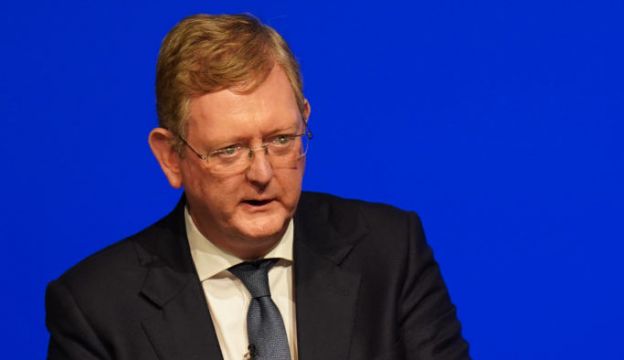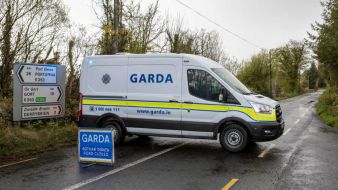The British government’s legacy Bill, which is opposed by political parties and victims’ groups, will not be paused, Britain's Northern Ireland Office minister has insisted.
As the parliamentary under-secretary of state at the Northern Ireland Office, Jonathan Caine has had an integral role in the passage of the controversial legislation through the UK's House of Lords.
The Northern Ireland Troubles (Legacy and Reconciliation) Bill proposes an offer of immunity from prosecution for perpetrators of crimes during the Troubles who co-operate with a truth-recovery body.
This would include halting future civil cases and inquests linked to killings during the conflict.
This has sparked condemnation from victims’ groups, all the main Stormont parties and the Irish Government on the grounds that it would deny justice to families of victims.
Lord Caine said he understood the criticisms of the Bill but that a “realistic assessment” had to be made.
“I’m not immune to the feelings of those who’ve lost friends and loved ones to violence, to terrorism, and that’s when I made the pledge that I wanted to try and improve the Bill,” he told the BBC.
“What we have to do is step back and make a realistic assessment. Twenty-five years after the agreement, 29 years after the ceasefires, over half a century since the Troubles began, what we can realistically deliver for people in circumstances where the prospects of prosecutions is going to be vanishingly rare.”
The Bill is pending the report stage in the House of Lords, where it will have a third reading before proceeding to the final stages towards becoming law.
Lord Caine said the Bill’s progression would not be paused.
“One thing to be clear about is that we’re not trying to pause, we’re not pausing the Bill,” he said.
“It’s coming before the House of Lords next week for its report stage on the 21st and then the 26th of this month, but I’ve taken a very long time over the Bill.
“I first introduced it in July last year into the Lords, and we didn’t do a second reading til November.
“And I did make a pledge at that second reading last year that I would try and do my best to improve the Bill and put it into a better shape than the House of Commons had sent to us when we return it to the House of Commons in due course.
“We don’t want to delay but the case you’ve referred to does highlight one of the problems of the current inquest system, which is they are prone to delays because of lengthy processes.”
He added: “It’s not unknown for there to be lengthy delays in coronial inquests where there’s a lot of national security sensitive information or sensitive information that needs to be examined by the police or by the armed forces before anything is actually handed over.”
Lord Caine said the process under the new system would allow for information to be more forthcoming.
“I understand that many people have waited a long time for these inquests to start, to be granted, to get off the ground, and so on, which is one of the reasons why under our proposals, we want to try and get more answers, more information to people in a more timely manner than has been possible through the coronial inquest system,” he said.
This week, the PSNI apologised to a group known as the Hooded Men for the “actions and omissions of officers” surrounding interrogation techniques the men were subjected to in the 1970s.
Lord Caine acknowledged that the process of information gathering outline in the proposed legislation would reveal instances where members of the security forces did not “live up to the highest standards”.
He said that during Operation Banner – the operational name for the British armed forces’ operation in Northern Ireland from 1969 to 2007, more than “250,000, 300,000 people served in the police, the armed forces”.
He added: “The vast majority did an extremely professional, honourable and courageous job, and I’m on record many times to say that without their service and sacrifice, there would have been no peace process. So we owe them an enormous debt of honour.
“However, there will of course, during that 30-year period, be examples of where people didn’t live up to the highest standards. And of course, I fully expect this process will identify some cases where that happened.”
Taoiseach Leo Varadkar and Tánaiste Micheal Martin have both expressed opposition to the legacy Bill.
Lord Caine said engagement with the Irish Government is ongoing.
“We continue to talk to the Irish Government about these matters, and you’ll be aware that the British-Irish intergovernmental conference is meeting in London next week,” he said.
“I had meetings with the Department of Foreign Affairs a couple of weeks ago to discuss some of these issues.
He added that the UK government would “encourage Dublin to work with a new body and alongside it and to cooperate”.







